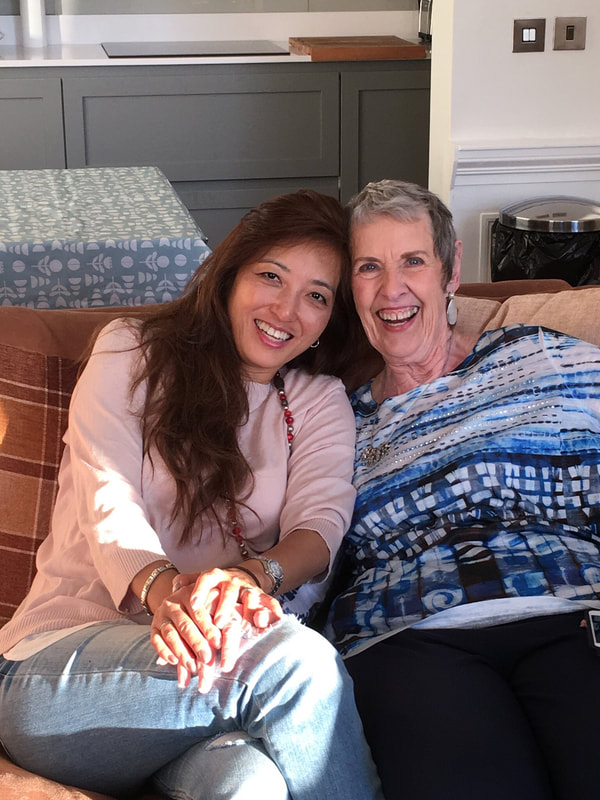by Camille Johnson

Many people regard hospice care as a last resort. However, hospice care is actually the most humane and gentle way to deal with a terminal or long-suffering illness. It gives people the opportunity to spend their remaining time on earth with dignity, with less pain and more time to spend with those who matter to them. Today, Erica Shinya Kim outlines some common questions you might be asking yourself at this challenging time – and how to answer them.
1. What Type Of Hospice Care Do We Want?
Hospice refers to a type of service, not a place. Going to hospice doesn’t necessarily mean being checked into a specialist facility. According to the American Hospice Foundation, there are several options, including at-home care, nursing home, assisted living facility, or specific hospice units in a hospital.
Of these, the most common is actually at-home care. In this system, it’s mostly the family that takes care of day-to-day tasks like medication, making meals, and helping the person live their life as normally as possible, while the hospice team is there to provide guidance and support. If family members aren’t able to help with activities of daily living, you should call on a personal care worker.
2. When To Start Hospice Care?
There is an idea that hospice care is only for the very last days of life, but Hope Help explains that sooner is often better. Hospice care is all about improving your quality of life and easing pain: it only makes sense to give your loved one as much of this as possible. You don’t have to wait for a doctor to suggest it, either. In fact, doctors tend to wait until families bring it up, so don’t be afraid to have this conversation earlier than you would expect to.
3. What Therapies Might Be Beneficial?
Hospice care can include a wide range of treatments and therapies. Hospice almost always involves palliative care, which is focused on relieving symptoms while delivering treatment. This can take the form of traditional medicine, such as prescription medication, but there are also other options. For instance, holistic medicine is increasingly being used as a more natural solution for things like pain management. However, holistic medicine is not covered under Original Medicare, except for some osteopathic and chiropractic services.
4. How Do I Keep All This Paperwork Straight?
Paperwork, insurance information, bills, and medical records can quickly feel overwhelming. To make things a little easier on yourself, take a moment to digitize important files and organize them, along with any other notes and therapy resources. Also, creating merged PDFs will make the information easier to access, reference, and share as needed. It’s important that you have all of the information in front of you to help you and your loved one make the choice that’s right for them.
5. What Are Their Preferred End-of-Life Arrangements?
Of course, you don’t want to think about end-of-life arrangements, but it’s important to make these discussions a priority. It is vital to approach these conversations from a place of trust and mutual respect. The Conversation explains the importance of discussing these difficult matters in a way that is gentle but productive.
When having these conversations, make sure you complete the forms necessary to act in their interest and that you know the location of important documents like your loved one’s will, power of attorney, and life insurance policy. If your loved one owns their own business, you’ll need to also figure out the details around how to conduct a transfer of ownership. This could include an outright sale, a lease agreement, or a gradual sale.
Let Hospice Help Your Loved One
Entering hospice isn’t necessarily good news, but it shouldn’t be taken as bad news either. It is always going to be difficult to watch a loved one in their last days, but hospice helps make these days smoother. Remember that the service isn’t just there for the one who is dying – it’s also there to help you, the family, navigate these difficult times and get the support you need.
Erica Shinya Kim is an author who’s here to share everything from recipes to tips on grieving. Questions? Don’t hesitate to reach out!
Personal Thoughts by Erica Kim
I have deep respect for the ways Jackie took care of her husband to the very end and loved him through his suffering. My prayers go out to Jackie and her family.
I know that many who are reading this article have probably lost someone very dear to them. As someone who has lost her family (parents, sibling, grandparents), not through slow decline during hospice care but to sudden death, I am glad that Camille was able to write about practical thoughts regarding hospice care. The truth is that the pain of loss is difficult no matter the circumstance.
I am grateful to God for those who will be waiting for me in heaven and that I will be able to see them again.
“Precious in the sight of the Lord is the death of his faithful servants.” Psalms 116:15 (NIV)












 RSS Feed
RSS Feed